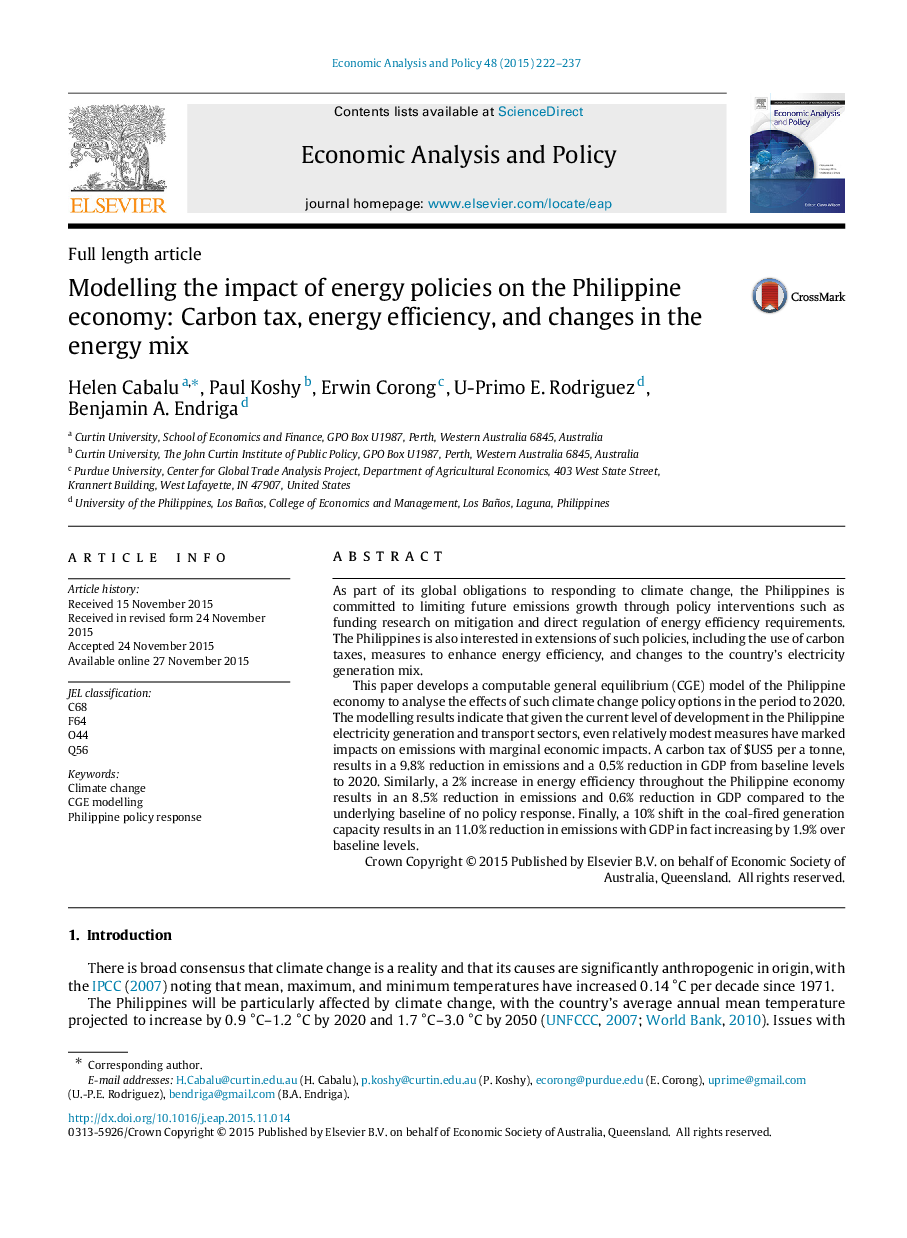| کد مقاله | کد نشریه | سال انتشار | مقاله انگلیسی | نسخه تمام متن |
|---|---|---|---|---|
| 5052755 | 1476487 | 2015 | 16 صفحه PDF | دانلود رایگان |
As part of its global obligations to responding to climate change, the Philippines is committed to limiting future emissions growth through policy interventions such as funding research on mitigation and direct regulation of energy efficiency requirements. The Philippines is also interested in extensions of such policies, including the use of carbon taxes, measures to enhance energy efficiency, and changes to the country's electricity generation mix.This paper develops a computable general equilibrium (CGE) model of the Philippine economy to analyse the effects of such climate change policy options in the period to 2020. The modelling results indicate that given the current level of development in the Philippine electricity generation and transport sectors, even relatively modest measures have marked impacts on emissions with marginal economic impacts. A carbon tax of $US5 per a tonne, results in a 9.8% reduction in emissions and a 0.5% reduction in GDP from baseline levels to 2020. Similarly, a 2% increase in energy efficiency throughout the Philippine economy results in an 8.5% reduction in emissions and 0.6% reduction in GDP compared to the underlying baseline of no policy response. Finally, a 10% shift in the coal-fired generation capacity results in an 11.0% reduction in emissions with GDP in fact increasing by 1.9% over baseline levels.
Journal: Economic Analysis and Policy - Volume 48, December 2015, Pages 222-237
